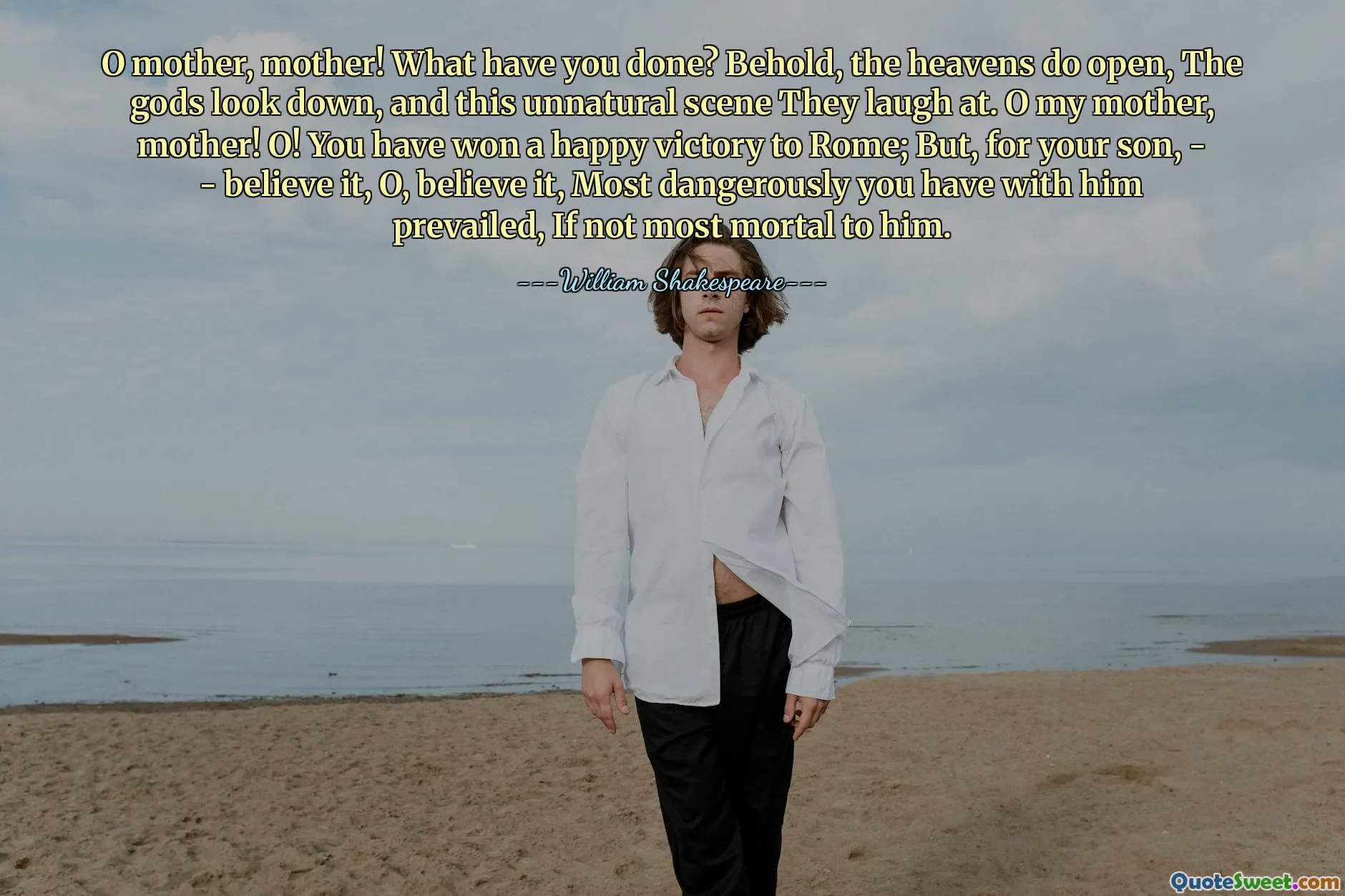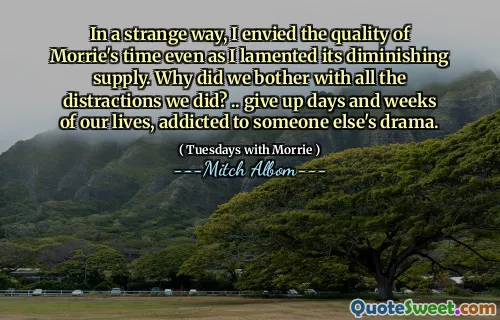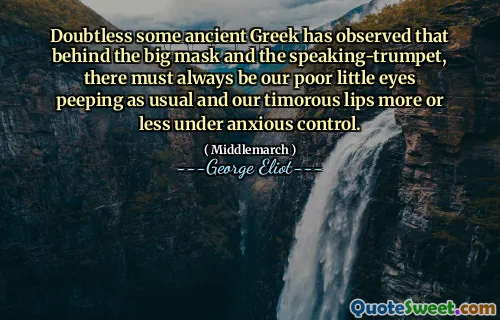
O mother, mother! What have you done? Behold, the heavens do open, The gods look down, and this unnatural scene They laugh at. O my mother, mother! O! You have won a happy victory to Rome; But, for your son, - - believe it, O, believe it, Most dangerously you have with him prevailed, If not most mortal to him.
This poignant excerpt from William Shakespeare's works vividly captures the intense emotional turmoil experienced during times of conflict and personal loss. The speaker fervently addresses their mother, expressing a mixture of anguish, betrayal, and foreboding. The invocation of the heavens opening and the gods observing reflects a sense of divine scrutiny and the gravity of the situation. The speaker's mention of a "happy victory to Rome" highlights how, from a political or national perspective, the outcome might be celebrated, yet it comes at a dire personal cost. The phrase suggests that personal tragedy can often be intertwined with, or even overshadowed by, larger national triumphs, creating complex feelings of victory and loss. The warning that the victory may be "most dangerously" harmful emphasizes the theme of unintended consequences—how triumphs in war or politics might bring suffering or moral compromise to individuals, especially loved ones. Shakespeare masterfully explores the conflict between personal loyalty and larger allegiances, the grief of a mother supporting a victory that aligns with her interest yet endangers her son. Such themes resonate through ages, reminding us of the profound sorrow that can accompany pride, duty, or victory when personal bonds are strained or broken. It prompts reflection on the cost of political triumphs and the unpredictable fates that intertwine personal and national histories.







